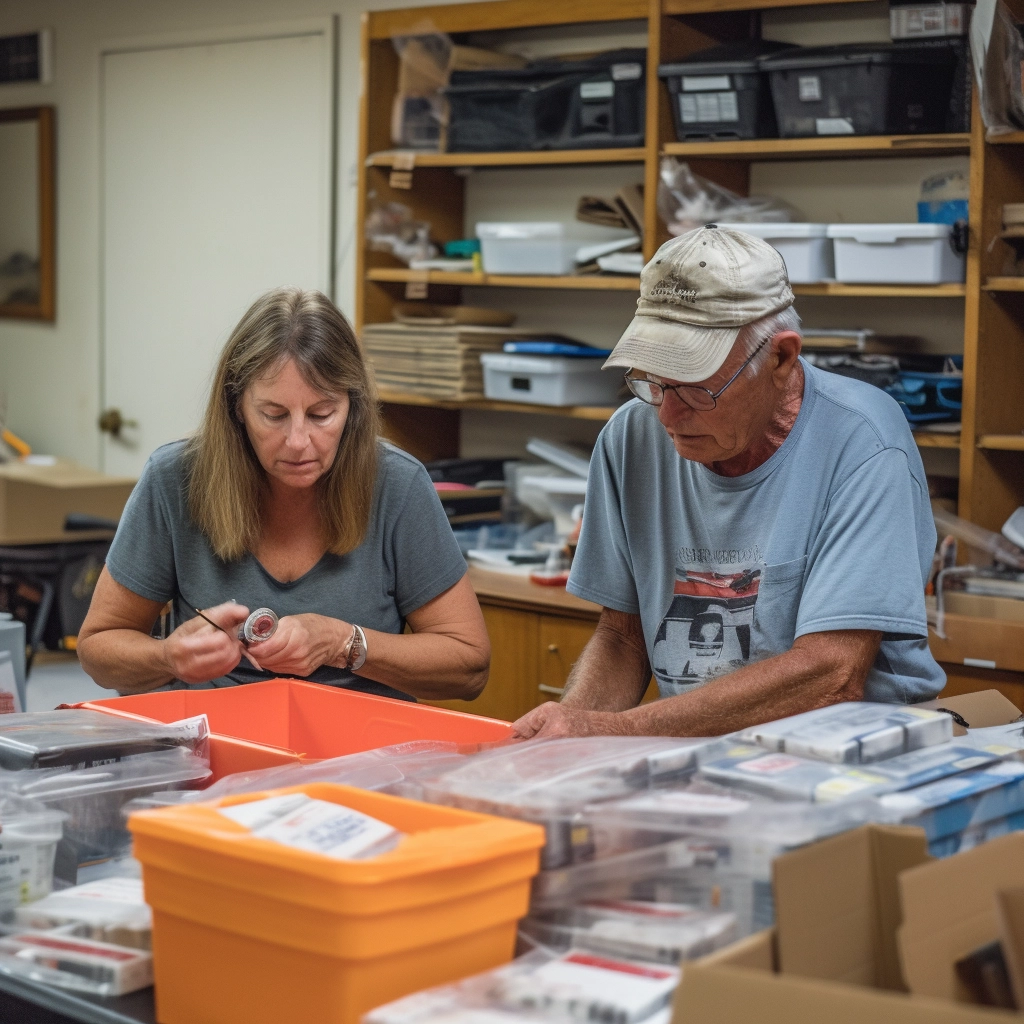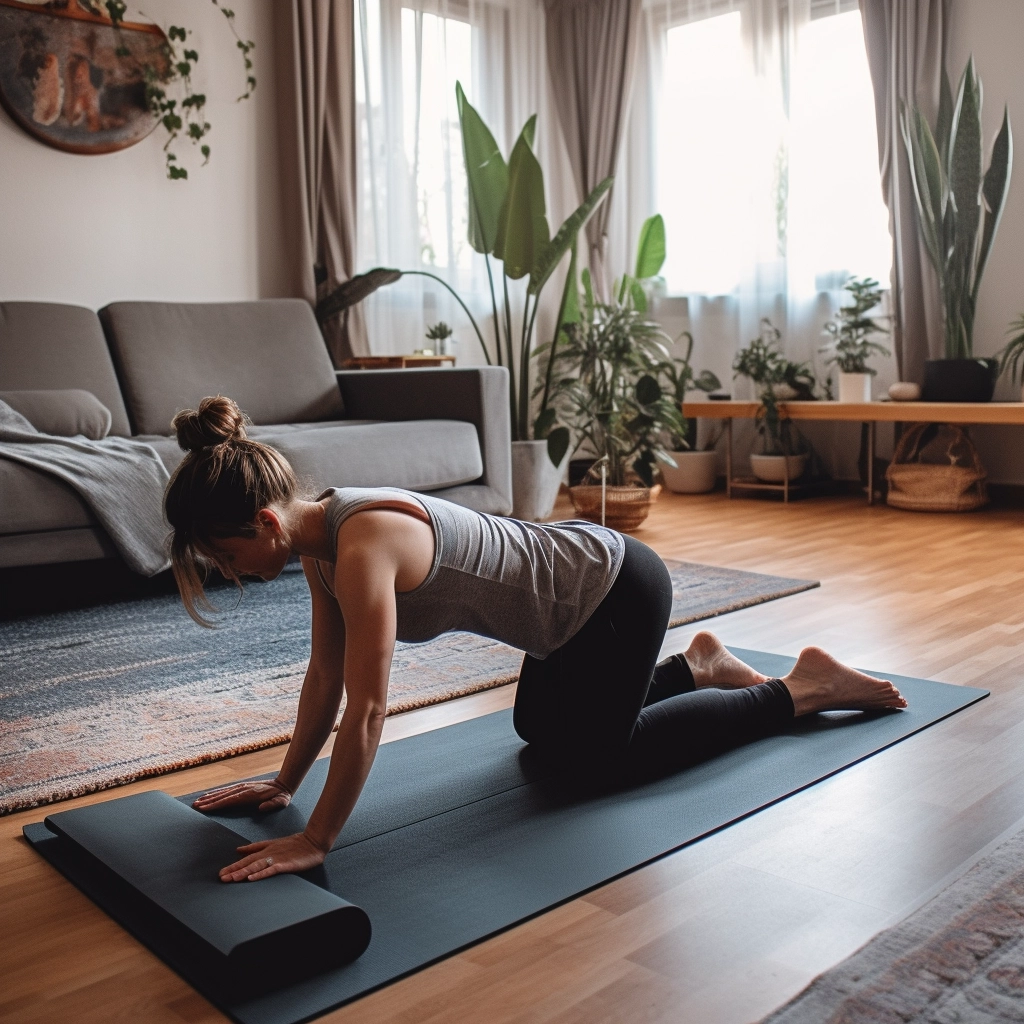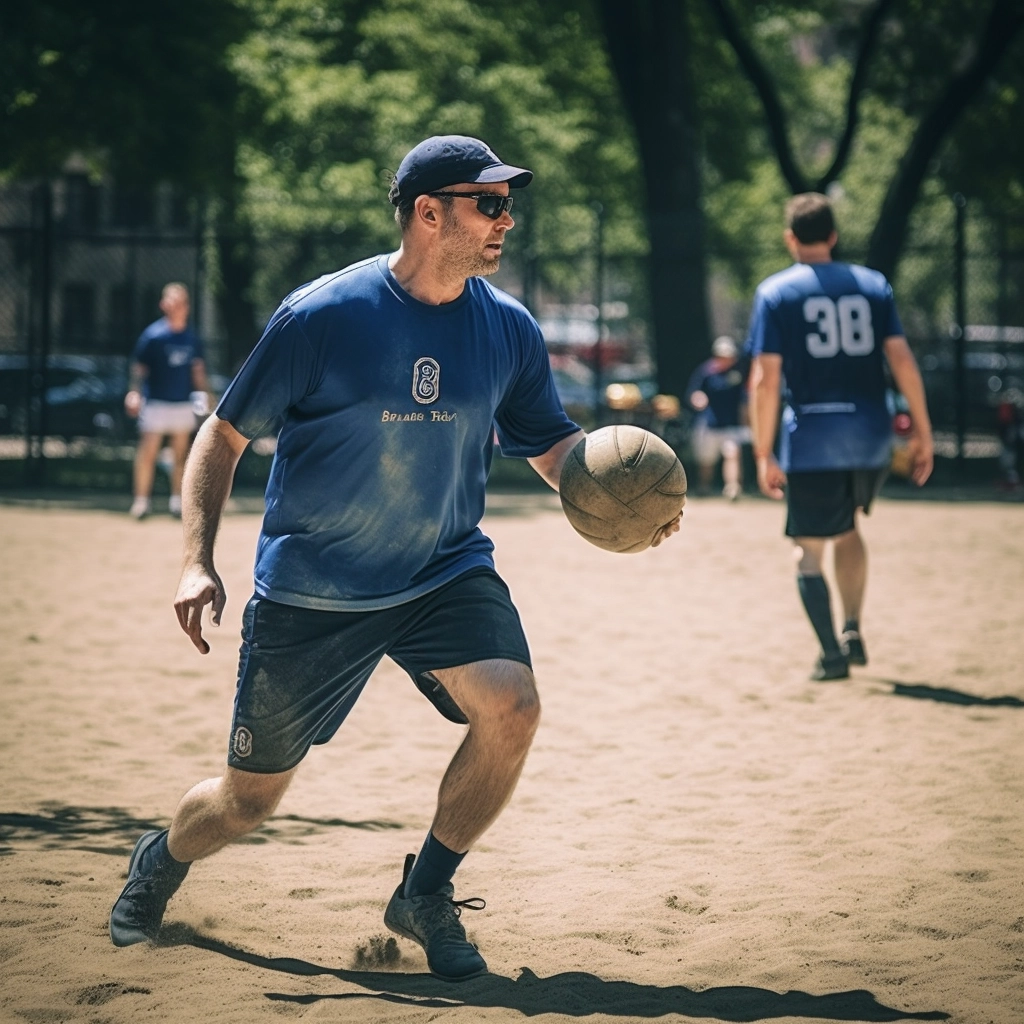Cutting back on or cutting out alcohol is an incredible step towards a healthier and more fulfilling life. One of the most common experiences Monument members share when they first stop drinking is that they have more free time, and more energy to fill it with. Whether you’re looking for a sober activity to distract from cravings, fill newfound free time, or bring you alcohol-free joy, there are many options to choose from.
1. Getting out into nature
Connecting with nature can be a refreshing and even meditative experience. Some of our favorite outdoor activities include camping, hiking, having a bonfire, going apple-picking, and enjoying the sunset from scenic vista. If you’re not sure where to begin, look into any natural landmarks you haven’t yet explored in your area. Spending time in nature can create physical distance between you and any drinking triggers, while also providing countless health benefits such as lowering your heart rate and reducing stress.¹

2. Volunteering
One of the most meaningful ways to spend free time in sobriety is to give back. This could mean volunteering your time with a local organization, donating school supplies or toys to families in need, or participating in a fundraiser or food drive. Getting involved with volunteering can give you a sense of purpose and connection, and makes it easier to say no to alcohol. It can also make an incredible difference in the lives of others, and extend the benefits of sobriety far beyond your immediate circle.

3. Gardening
Many people find that gardening is a rewarding hobby in sobriety. Whether you build a garden in your backyard or start an indoor herb garden, nurturing plant life is a great way to boost vitamin D levels, improve moods, and focus on a long-term project.² Watching the progress of your plants grow steadily through time can serve as a beautiful reminder of your own progress as you continue on your sobriety or moderation journey.

4. Organize a game or puzzle night
Game night is a great way to bring people together while also shifting the focus away from drinking. You can stay at home for charades and board games, or visit a fun destination like an escape room or bowling alley. If you prefer some solitary time, you can always begin a puzzle. Whatever you choose, games are always a great way to enjoy yourself and feel engaged.

5. Plan an alcohol-free date or take yourself on a date
While sober dating can feel intimidating at first, it’s also a great way to get out of your comfort zone and create meaningful memories. Surprise your significant other with a fun alcohol-free date around your area. Or, there’s always the option to plan something special for yourself!
6. Go to a sober meet-up
Finding community with other people who are changing their relationship with alcohol can provide encouragement, accountability, and the comfort of being surrounded by other people who “get it.” Do some online research to see if there’s a sober event or activity happening in your area, or explore virtual communities like Monument’s 24/7 alcohol support forum and therapist-moderated alcohol support groups.

7. Go outside-the-box for exercise
There are countless benefits to exercising in sobriety, including better sleep, reduced alcohol cravings, improved health outcomes, and boosted dopamine-levels.³ A great way to get exercising is to try something new. Kickboxing, yoga, rock climbing, and paddle boarding are just a few fun and unconventional ways to jumpstart an exercise habit. You’ll find that sobriety gives you more energy for exercise, and exercise can give you even more energy for everything else.

8. Explore and document your family history
Learning more about your ancestors and family tree can be a special activity that many people never find the time for. Speaking with older members of your family, getting a DNA-test, or re-surfacing old family photos and records can be a life-changing activity that gives you a new perspective. As a bonus, you can work on a cataloging project or scrapbook that preserves these stories for generations to come.
9. Take an in-person or virtual class
Having a scheduled class is a helpful way to build a structured routine and explore new interests. It can be especially helpful to sign up for a class during a time frame you previously associated with drinking, like during ‘happy hour.’ There’s an incredible diversity of classes to choose from, including courses in writing, painting, cooking, pottery, dance, photography, and music. If you’re looking for something you can do from home, there’s many innovative virtual classes to explore.

10. Get crafty
Starting a DIY-project can be incredibly rewarding. You can channel your creative side with knitting, painting, sculpting, rug-making, beading, and much more. Creating something with your own two hands is proven to help the mind relax, and can fill you with a great sense of pride. If mistakes happen, it’s a great opportunity to learn to get comfortable with mess!
11. Have an alcohol-free cocktail night
Just because you’re alcohol-free doesn’t mean you can’t enjoy a delicious beverage! The non-alcoholic beverage world is a booming industry, with alcohol alternatives for beer, wine, spirits, and more. If non-alcoholic beverages aren’t your thing, that’s completely valid. You can get creative with your own seltzer concoction, smoothies, or hot beverage recipes.

12. Reconnect with friends and family
Living an alcohol-free life provides even more opportunities to create meaningful connections with others. Spending time with friends or family members can increase confidence, boost serotonin, and even extend life expectancy.⁴ You can call or write to loved ones who are far away, or spend time with a younger family member and enjoy their playful energy.

13. Explore sobriety books and podcasts
Hearing the stories of others can be an affirming and empowering way to spend your free time. There’s a large selection of “quit lit” about various authors’ journeys through recovery and sobriety. There’s also an exciting collection of sobriety podcasts to follow along with. These resources can help you discover new perspectives, and learn something new about sobriety every day.
14. Revisit a childhood interest
It can be helpful to remember the alcohol-free activities that brought you joy when you were younger. If you had a favorite hobby or special interest as a child, such as collecting specialty items, playing with makeup, or participating in a baseball league, consider getting back in touch with that younger self and revisiting the activity in a way that fits with your current lifestyle.

15. Visit an amusement park or have a thrilling adventure
Sometimes one of the best ways to get out of your head is to seek out an adrenaline rush. Roller Coasters and other amusement park rides are a great way to get a thrill without any substances needed. If you’re looking for something slightly more tame, you can go out laser tagging, arcading, indoor skydiving, zip lining, or dancing at a silent disco. These activities are a great way to release stress and get your endorphins pumping.

16. Complete a home improvement project
Perhaps it’s time to get to that home improvement project that’s been stuck on your to-do list. You can spend time decluttering, organizing, or fixing furniture. Putting your time and energy into enhancing your environment can be an interesting and fun experience, not to mention the great sense of accomplishment when checking it off your list!

17. Explore local art and music
There are countless ways to experience art, and they don’t always have to include expensive tickets. Visit your local museum, watch an open mic comedy night, attend a local play or dance show, or see if there’s a jazz café in your area. Going out for a show can be the perfect weekend activity to make the night feel special and memorable.
18. Join a book or film club
Reading interesting books and watching new films are great ways to relax while expanding your mind. To take this hobby to the next level, consider joining a book or film club. Meeting with others regularly can help you discover new books or movies, stay accountable to your hobby, and feel part of a community (beyond the Monument Community!).

19. Get involved in your neighborhood
Sometimes the greatest gifts come from investing in our surroundings. Check out your neighborhood newsletter for any upcoming events. You can throw a block party, help plan holiday festivities, or get involved at your local community center. This can give you a chance to connect with people of all ages and take pride in the place you live.
20. Spend time with animals
Having animals in your life can change your entire outlook and wellbeing. Caring for a pet can be a fulfilling way to spend your newfound free time and energy. If you’re not ready for a pet of your own, you can volunteer at a local animal shelter or spend time with a friend’s pet. You can also take a day trip to a zoo or aquarium. However you decide to bring more animals into your life, the experience is proven to boost your mood, self-esteem, and empathy.⁵
21. Practice self-care
Finding ways to nurture your own mental health and wellbeing in sobriety is a top recommendation from therapists at Monument. This can include taking baths, journaling, meditating, or going to therapy. Not only will these self-nurturing activities make you feel better, but they also act as healthy coping mechanisms whenever a challenge or craving arises in your alcohol recovery timeline.
22. Learn a new language
Whether revisiting a language you were learning in the past or beginning with a new one, learning a language can be a life-changing experience. Benefits of language learning include improved attention span, better memory, and greater cognitive ability.⁶ Plus, it can open new doors for traveling, professional development, and cross-cultural experiences.
23. Explore your culinary side
Many people discover a passion for cooking and food once they stop drinking alcohol. You can explore new dinner recipes, or learn how to make one of your favorite dishes entirely from scratch, like pasta or ice cream. The culinary world is a great place to channel the energy (and money!) you may have previously spent on alcohol. For example, if you were particularly knowledgeable about wine, you could transfer that interest into specialty olive oils.
24. Create alcohol-free traditions
Sobriety provides the opportunity to create new and meaningful rituals. This could look like creating an alcohol-free “happy hour” routine with activities you love, or treating yourself to a spa day after a major accomplishment. You can also create new celebratory rituals for special events, such as a gratitude circle or a signature non-alcoholic cocktail.
25. Plan a trip
One of the best ways to shake up your routine is to pack up and go somewhere new. One of the great benefits of sobriety is that it can help you save money that you might have spent on alcohol and allow you to invest in more memorable experiences. You can plan the trip so that you avoid any alcohol-centric activities and environments, and get to truly appreciate your time. The world is your oyster!

26. Join a Local Sports League or Club
Engaging in team sports or joining a local club can foster a sense of community and accomplishment. Whether it’s soccer, basketball, running, or cycling, being part of a team or club encourages regular physical activity, which is beneficial for mental health and maintaining sobriety.
27. Digital Detox and Mindfulness Retreats
Taking time to disconnect from digital devices and participating in a mindfulness retreat can provide a profound sense of peace and self-discovery. These retreats often include activities like yoga, meditation, and workshops on wellness, offering tools to handle stress and emotions without relying on alcohol.
28. Sustainable Living Workshops
Learning about sustainable living through workshops or community programs can be a fulfilling way to spend time. These workshops might cover topics like zero-waste lifestyle, permaculture, or sustainable cooking, aligning with the desire for a healthier lifestyle often accompanying sobriety
29. Adventure Travel
Planning a trip focused on adventure and exploration, such as hiking in national parks, kayaking, or backpacking in new countries, can shift the focus from alcohol to the excitement of discovering new places and cultures.
30. Engaging in Community Service Projects
Discover the fulfillment of contributing to larger community projects. This can include participating in local clean-up efforts, building homes with organizations like Habitat for Humanity, or contributing to community gardens. Not only does this provide a sense of accomplishment and connection to your community, but it also redirects focus and energy into constructive and rewarding endeavors. Engaging in these projects can offer a new perspective on personal growth and the importance of giving back, reinforcing the positive aspects of a sober lifestyle.
Creating new habits and rituals will help you grow more comfortable in your alcohol-free life and discover all the activities that truly bring you purpose and joy. Looking for some extra support and guidance on your sobriety or moderation journey? Monument offers many expert resources, including alcohol therapy, medication to stop drinking, and alcohol support groups. We’re here for you along the way.
Sources:
- USDA. “The Wellness Benefits of the Great Outdoors, https://www.fs.usda.gov/features/wellness-benefits-great-outdoors.” Accessed Mar. 9, 2022.
- AARP. “5 Health Benefits of Gardening and Planting, https://www.aarp.org/health/healthy-living/info-2017/health-benefits-of-gardening-fd.html.” Accessed Mar. 9, 2022.
- Library of Medicine. Role of exercise in the treatment of alcohol use disorders (Review), https://pubmed.ncbi.nlm.nih.gov/27123244/.” Accessed Mar. 9, 2022.
- Library of Medicine. “Effect of social networks on 10 year survival in very old Australians: the Australian longitudinal study of aging, https://www.ncbi.nlm.nih.gov/pmc/articles/PMC1757078/.” Accessed Mar. 9, 2022.
- American Psychological Association. “How animals affect us: Examining the influences of human–animal interaction on child development and human health, https://www.apa.org/pubs/books/4318085.” Accessed Mar. 9, 2022.
- Educational Gerontology. “Learning a second language in late adulthood: benefits and challenges, https://www.researchgate.net/publication/337113140_Learning_a_second_language_in_late_adulthood_benefits_and_challenges.” Accessed Mar. 9, 2022.
